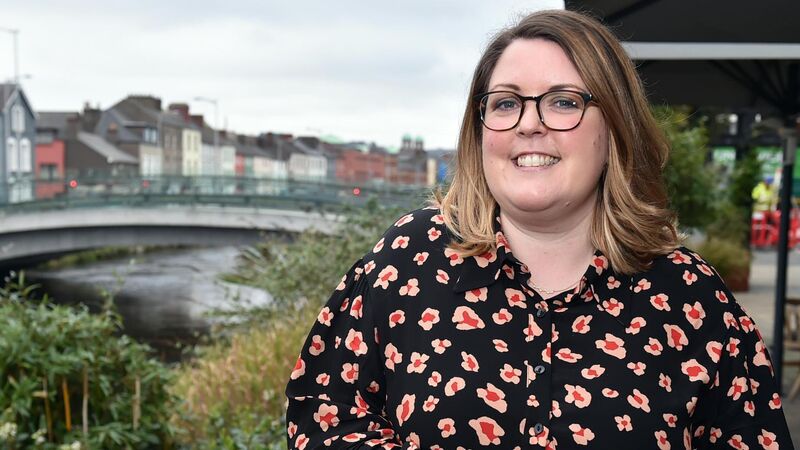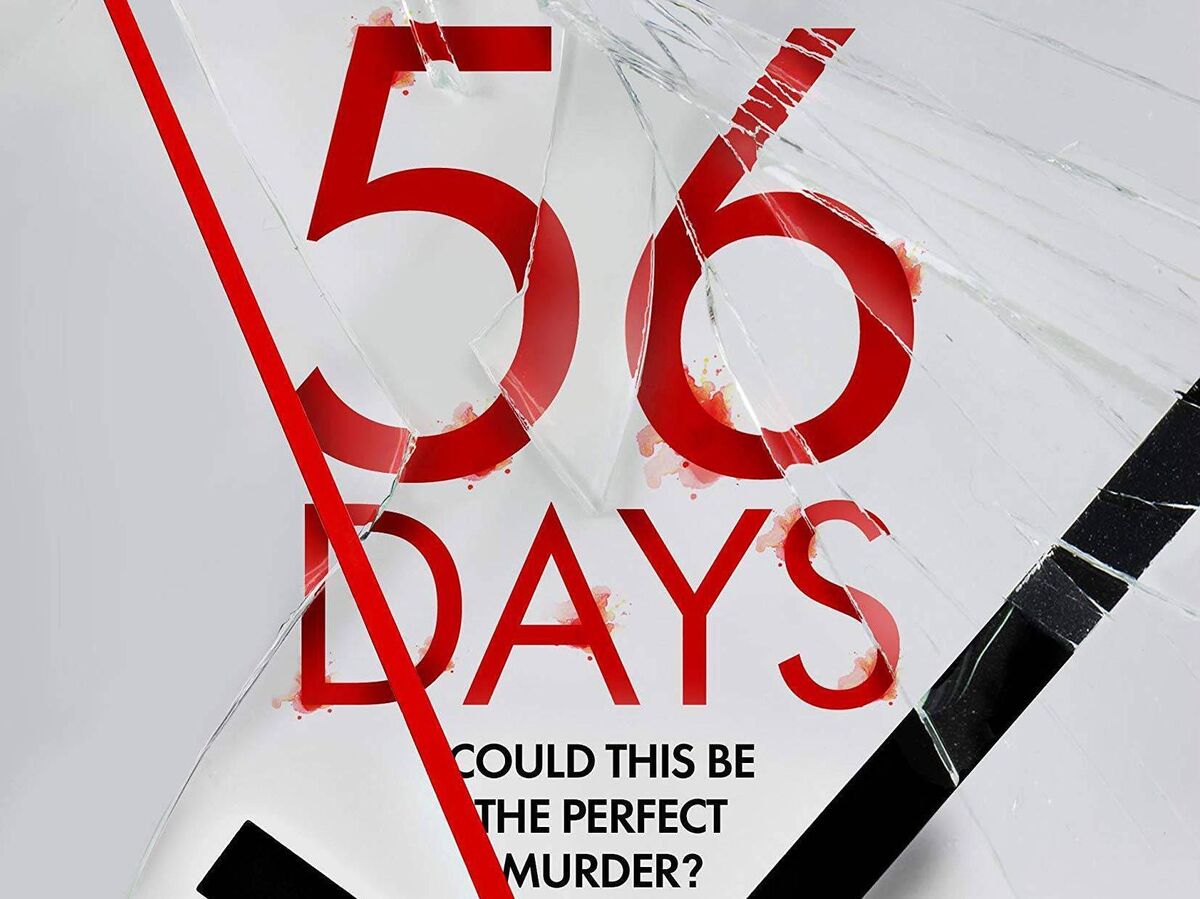Catherine Ryan Howard: 'We have this fetish about how writers make no money'

Cork novelist Catherine Ryan Howard, Picture: Eddie O'Hare
Catherine Ryan Howard has become accustomed to keeping people up at night. Since she released her debut, Distress Signals, in 2016, her dark and clever thrillers have garnered her a growing legion of fans who devour her books in anticipation of a satisfying climactic twist.
Her fifth and latest book, 56 Days, is no exception. “I love robbing people of their sleep, it’s my favourite thing,” she says in response to anecdotes of people who've already stayed awake late into the night reading preview copies.
Just published, 56 Days is a tautly plotted and ingeniously structured psychological thriller set during lockdown, following a couple who meet just before the pandemic and swiftly move in together. There are grisly consequences, but who, why and how, remains a mystery until the very end.
For Ryan Howard, who was working on a different book when lockdown was announced, it was a risky move to write a book set during the pandemic, a subject readers might understandably wish to avoid.
“To me, it was irresistible. For three years, I had sort of a vague plot where a couple meet and fall in love but all is not what it seems. But I never had enough meat to go with it. When lockdown hit, I was actually writing a different book which I suddenly found I couldn’t even look at because it was about nightclubs and international travel and stuff, it was like science fiction.
"So I felt like, well, I have this great idea for this couple, they can move in together for lockdown. I didn’t want to leave the idea on the table. You can play it safe but I never do. So far, readers have come with me. It is always a risk. My hope is, and I see it happening with early readers, when people have read this book, they don’t think it’s a pandemic novel, that they realise it’s just a set-up.”
Ryan Howard grew up in the Cork suburb of Grange but has lived in Dublin for several years. She says writing 56 Days helped her get through the first lockdown in a tiny apartment, from which she has since moved.
“I think it actually saved me in a lot of ways. I would go out and walk around the city. I was living near Leeson St Bridge, so my 2km was Grafton St, Stephen’s Green, and it really was like the opening scene of the Walking Dead, there was no-one around. I would notice things and then come home and put it in the book. I was almost writing it in real time.
"Also, I live alone, so I was completely isolated because I’m a very good girl and I don’t break any rules. So it was just me and my book for however many weeks. And some Zoom cocktails, but mainly me and my book.”
Ryan Howard writes a book a year, which she doesn’t consider a lot.
“I’m single, child-free and this is my full-time job. So many people have said to me, ‘I can’t believe you managed to write a book during lockdown’, but it’s my job and everyone else had to keep doing their job as well. I’m not down a mine or doing anything particularly arduous. Although I do think it’s amazing I managed to do it with Netflix and procrastination,” she laughs.
It is clear that Ryan Howard is far from precious about the craft of writing and she is particularly vocal about the delineation between so-called genre writing, such as the crime fiction and thrillers she writes, and literary fiction. She has said previously that she was “sick to the teeth” of hearing about how all Irish writers are impoverished, a scenario which she feels discounts genre writers.
“The odds are against you, I accept that, but in Ireland, we have this absolute fetish about how writers are poor and they make no money. A lot of that is to do with the fact that when we talk about writers in this country we talk about ‘Irish Writing’ with a capital ‘W’ — meaning literary fiction, where the market is small, the competition is fierce, and even if you do amazingly well in that genre, you are not selling that many books.
"That is why a lot of literary fiction writers are teaching or reviewing, things like that, and that is fair enough. What I don’t like is that blanket statement, ‘you can’t make a living as a writer’. I am published here and in the States, The Nothing Man just went into its ninth language, I have some TV options, I am writing my sixth book, it all begins to add up, and you absolutely can make a living — what good is it doing telling writers starting out that they’re definitely not going to make a living from it?”

Ryan Howard is now 39 and had several jobs along the way to becoming a full-time writer, including a stint at Disney World in Florida, which she wrote about in a self-published book. At the age of 32, with no publishing deals on the horizon, she decided to do a degree in English literature at Trinity College. Six weeks after she started, she got an agent and six months later she had her first book deal.
“I stayed in Trinity because I wanted to finish the degree. A lot of people think I did it to improve my writing, but I didn’t study anything writing-related. Sometimes I really struggled to think how I benefitted from it because as a mature student, it is a very different experience.
"Also, I bet, if I hadn’t done it, I wouldn’t have been published — the universe was just thinking, ‘well, this is great now, she is off doing something else so we are going to make her biggest dream come true’."
It led to some funny moments, such as having to sit an exam the morning after her first ever book launch. "I was so green I nearly skipped it, but I ate an avocado, had a shot of espresso, went and did the exam and I got a 2:1.”
Ryan Howard says there is “no danger” of her being associated with the recent wave of fiction from fellow former Trinity students, including Sally Rooney, Naoise Dolan, Megan Nolan and Louise Nealon.
“There are so many books about girls going to Trinity but it’s just some bricks, it’s not an identity. The day I graduated was probably the best day of my parents’ life but honestly, some days, I’ve forgotten I went there. It is almost like the idea of going to Trinity and my experience of going there are two entirely separate things.”
For Ryan Howard, writing is all about creating an opportunity for the reader to escape.
“I often say I’m not in the literature business, I’m in the entertainment business. What I want to do is give someone my favourite feeling in the world, which is those hours you lose on a couch, on the beach or on a plane, where you are just totally sucked into a book."
She is quite clear about the differences between literary fiction and genre fiction. "I find that when I’m reading literary fiction, I’m noticing the prose, so I will stop and think, what a beautiful description… but for me, I don’t want people to notice my prose at all because I want them to forget they are reading a book.
"I want them to just experience the story between my brain and their brain with as few obstacles in between. That in itself is a really difficult thing to do well.”
- 56 Days, by Catherine Ryan Howard, published by Corvus, is out now.



